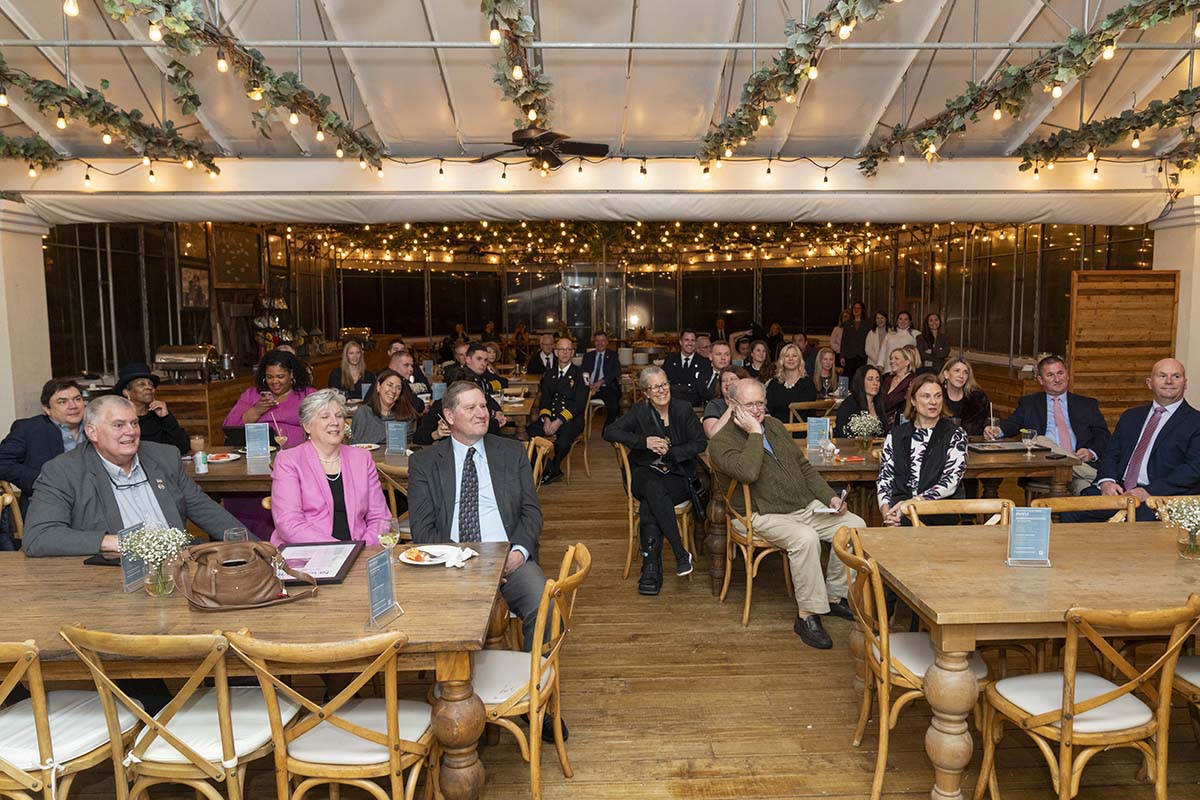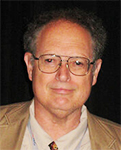John McAuliff (Peru) | People of the Year Awards Winner
John McAuliff (Peru 1964-66) is Executive Director and Founder of the Fund for Reconciliation & Development, and has been a lifelong activist in student, civil rights, and peace movements. He served as a Peace Corps Volunteer in Peru.
In 1985, he founded the Fund for Reconciliation and Development to achieve normal US diplomatic, educational, cultural, and economic relations with post-war Vietnam, Cambodia, and Laos. After that was achieved in the late 1990s, he changed the primary focus of the organization to obtaining similar normal US relations with Cuba, working especially in policy, travel, and educational and cultural exchange.

At the awards ceremony
The Times Review Media Group, publisher of The Suffolk Times, Riverhead News-Review, Shelter Island Reporter, Northforker and Southforker, recently gave John McAuliff one of its annual People of the Year Awards.
John has been working since the early 1960s to promote reconciliation and healing and build commonality all over the world. John went to Mississippi for 1964’s Freedom Summer voter registration campaign, he went on to champion post war reconciliation in Southeast Asia, and more recently in Cuba. As his wife Mary described him, “John believes fiercely in this country, and in its democracy, and in what it can be. He wants to help America be good, be right, live up to its values, its morals, its ideals.”
Born in Brooklyn, the son of a salesman, Mr. McAuliff earned a bachelor’s degree in American history from Carleton College in Northfield, Minn., in the spring of 1964. That summer, he went to Mississippi to register Black voters as part of a civil rights program that came to be known as Freedom Summer.
For two years beginning in the fall of 1964, Mr. McAuliff served as a Peace Corps volunteer in Peru. He spent 1967 and 1968 in Washington, D.C., where he received a master’s equivalent in politics of change from the Institute for Policy Studies.
By the early 1970s, Mr. McAuliff was director of the Indochine Program for the American Friends Service Committee, which worked to end U.S. intervention in Vietnam, Laos and Cambodia. He was part of a delegation that arrived in Hanoi on the last day of the Vietnam War, and spent years seeking to foster reconciliation between the U.S. and the three Southeast Asian nations by bringing together academics from all sides.
“His idea was, if you can get American professors who are teaching our kids to understand Vietnam a decade after the end of the war, you can then begin to change how Americans think about Vietnam,” Ms. McDonnell said.

Thanks for your unexpected report of my local honor as Riverhead’s Person of the Year.
Perhaps of greater relevance to your readers, after returning from Peru I worked with Bill Delano, the first General Counsel of the Peace Corps, at the International Secretariat for Volunteer Service. After my studies at IPS which coincided with the assassination of Martin Luther King Jr. and the Washington riot it triggered, I became the first national president of the Committee of Returned Volunteers.
CRV was a response of mostly former Peace Corps volunteers to the US war in Viet Nam that began with a full page ad in the New York Times. We had more than ten chapters nationwide and generated critical publications about US policy in our countries of service. When the US invaded Cambodia, CRV members occupied the Peace Corps office in Washington. By then I was doing Alternative Service in Indianapolis and provided support from the street in front of the office where the flags of the Democratic Republic of Viet Nam and the Provisional Revolutionary Government were draped from the window.
CRV ultimately called for ending the Peace Corps as a US government agency. Like veterans and other activist groups of the era, it radicalized itself out of existence.
My own position was and is that Peace Corps should follow the British model and be funded as an independent agency. Although I have had frequent friendly contact with US embassies in Viet Nam, Laos, Cambodia, and Cuba, I am still not a fan of Peace Corps being part of Country Teams. More separation might have avoided the abrupt termination during Covid of all volunteers around the world without consultation with host countries.
I agree that PC should be funded as an independent agency. US embassies always have political agendas, and those can shift overnight. PCVs should be comfortably separate from the ebb and flow of political tides. PCVs are involved in improving lives and living conditions, and shouldn’t have to shift course to satisfy political whimsy.
John, I should have known more about you a long time ago, but it’s not too late to learn of your many humanitarian efforts.
Patricia Edmisten, Peru, 1962 to 1964